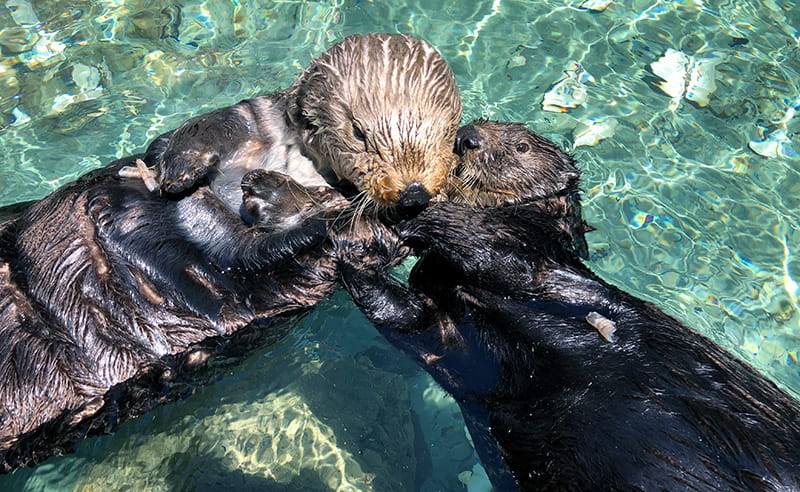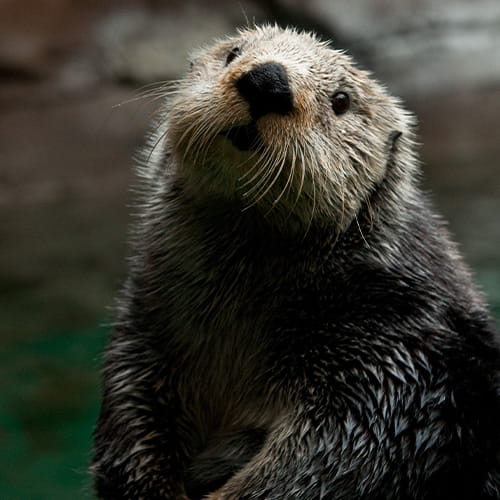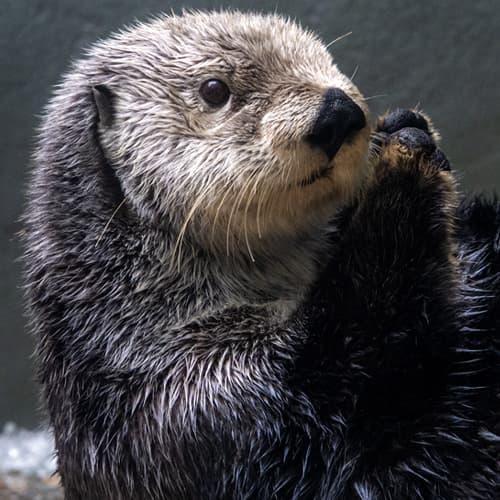You’ve probably seen pictures or videos of animals at the Seattle Aquarium enjoying enrichment. Maybe you’ve caught sight of a sea otter receiving a treat during training or a giant Pacific octopus solving a puzzle. But did you know that every animal at the Aquarium receives enrichment—including the fish?
In animal care, enrichment includes experiences and care that allow animals to exercise their natural behavior or instincts, stimulate themselves physically or mentally, and experience an environment that meets their needs. And while that can look like toys, puzzles and training, it also includes sensory experiences, feedings, habitat elements and social opportunities.
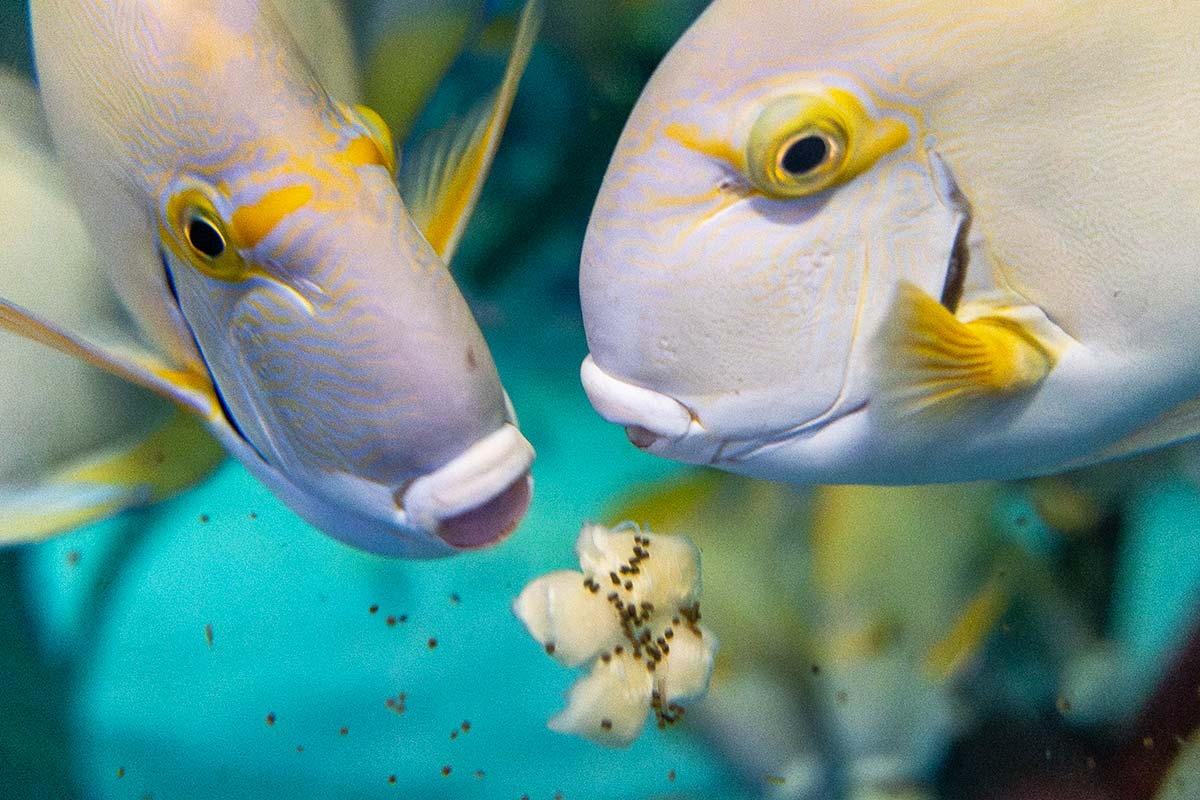
For fish, enrichment usually includes changing up their environment, providing appropriate habitats for each species, thoughtful feeding techniques and other good animal care practices. In fact, much of the daily care for these animals contributes to enrichment in some way.
As an institution accredited by the Association of Zoos and Aquariums (AZA)—a global independent nonprofit that holds its member zoos and aquariums to the highest standards—the Seattle Aquarium submits our enrichment plans for AZA review and approval. Our team also keeps detailed enrichment logs, to ensure we’re meeting each animal’s requirements.
Mindful meals
Our team puts a lot of thought into how they feed fish, as mealtime is a great time to satisfy different species’ physical and behavioral needs. The method of food distribution plays a part in this. In most large, mixed-species habitats—where fish often share space with plants and invertebrates like sea stars, anemones, corals and crustaceans—food is dispersed throughout the water. But that doesn’t mean food is simply dropped in.
Aquarists can release food near the pump in a habitat, so the current carries it away. The fish chase after it, just like they would hunt food in the ocean. Team members can also vary where in the habitat they release food, to give the fish a sense of novelty and allow them to find food independently. To mimic natural grazing behaviors, animal caretakers give tropical fish lettuce for them to munch on. And aquarists at our offsite Animal Care Center—where future Ocean Pavilion residents now live—regularly place Manila clams in the spotted eagle rays habitat, which fulfills the rays’ natural desire to sift through the sand for food and exercise their plate-like teeth.
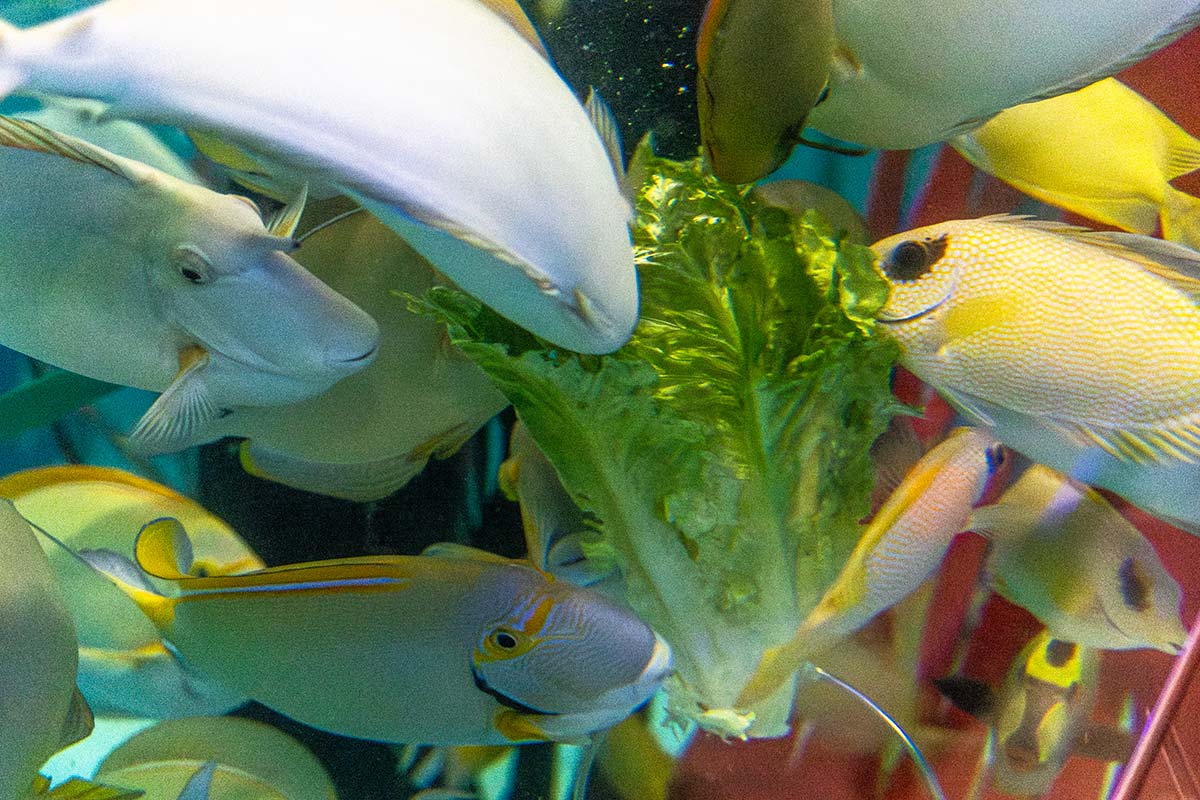
Some of the larger fish at the Animal Care Center, like sharks and rays, participate in target training during certain feeding times. Aquarists signal feeding time using a whistle and have the animals touch a target—which is a different shape and color for each species—before being rewarded with food. This training builds trust and prepares the animals for how they’ll eat and receive veterinary care in their buzzing, multi-species habitat at the Ocean Pavilion. See the process for yourself in our Animal Care Stories!
Change is a good thing!
We could all use a change of scenery every once in a while. To keep fish stimulated and mimic the ever-changing conditions in the ocean, aquarists regularly change up parts of their habitats. That can mean moving around rockwork or other physical pieces of the habitat. Team members can also adjust the water flow for a change of pace.
Habitat cleaning keeps things fresh in more ways than one! It’s a great time to make some positive changes to a space. Cleaning walls, rockwork and substrate naturally shifts the habitat’s landscape.
The cleaning process—undertaken by knowledgeable aquarists—also introduces something new to animals’ environments. Usually, that novelty comes in the form of a scrubber, scraper, grabber or even a pair of hands. During a cleaning, aquarists are attuned to any animal that seems particularly startled by a new object in their environment, though most animals at the Aquarium quickly acclimate to these routine cleanings.
Keeping an eye out
But how can aquarists know that fish enrichment is effective? Through observational work!
By paying close attention, aquarists can make note of how the animals respond to enrichment time. If animals seem bright and alert during feedings—like a bay pipefish hunting for its food—that’s a good sign. Aquarists also keep an eye out to make sure all animals in a habitat get a chance to eat.
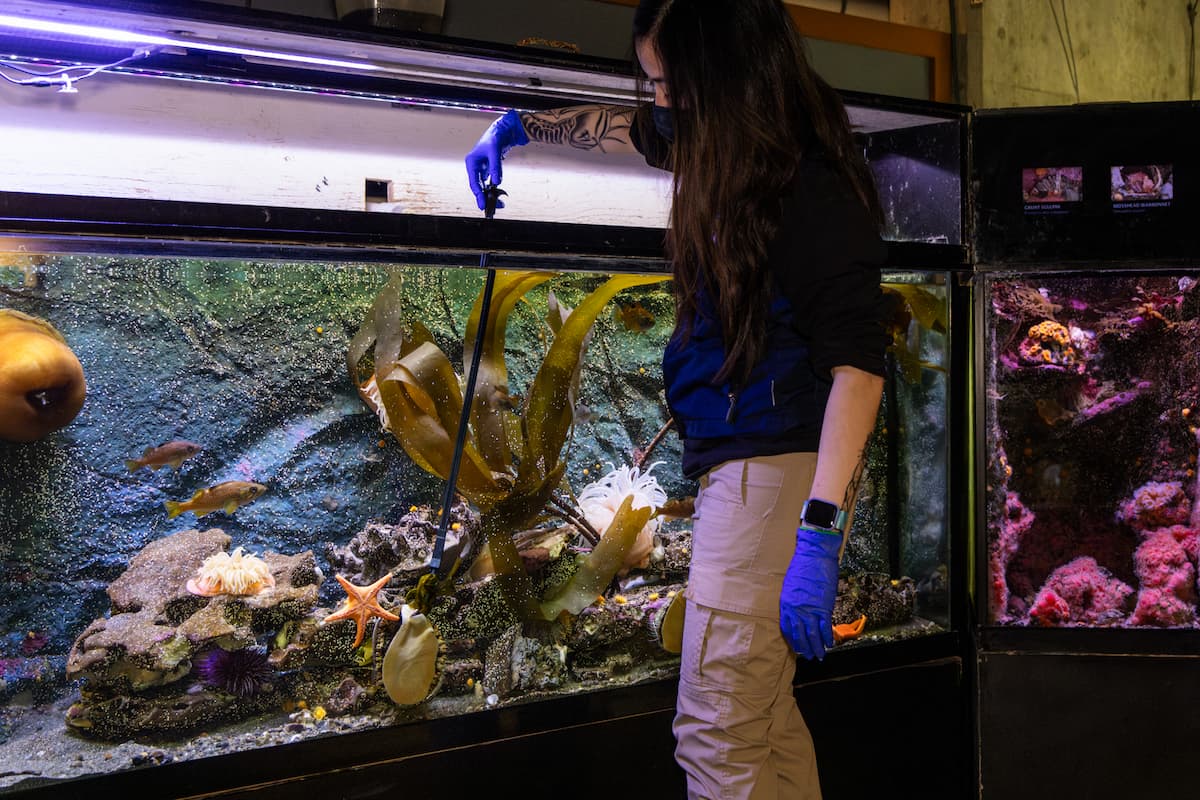
Through their daily care, aquarists get to know the behavior of individual fish pretty well. Understanding these animals’ habits helps inform decisions about their care. For example, a clown triggerfish at the Animal Care Center had such a bold personality, that aquarists decided to move him to a habitat with larger fish where he could really assert himself.
We can learn a lot about the fish in our care this way. Fish are smarter and more alert than some people give them credit for. They take notice too! Don’t believe it? Then you should see the way some fish follow an aquarist’s movements during feeding time. They know when it’s time for some tasty enrichment.
